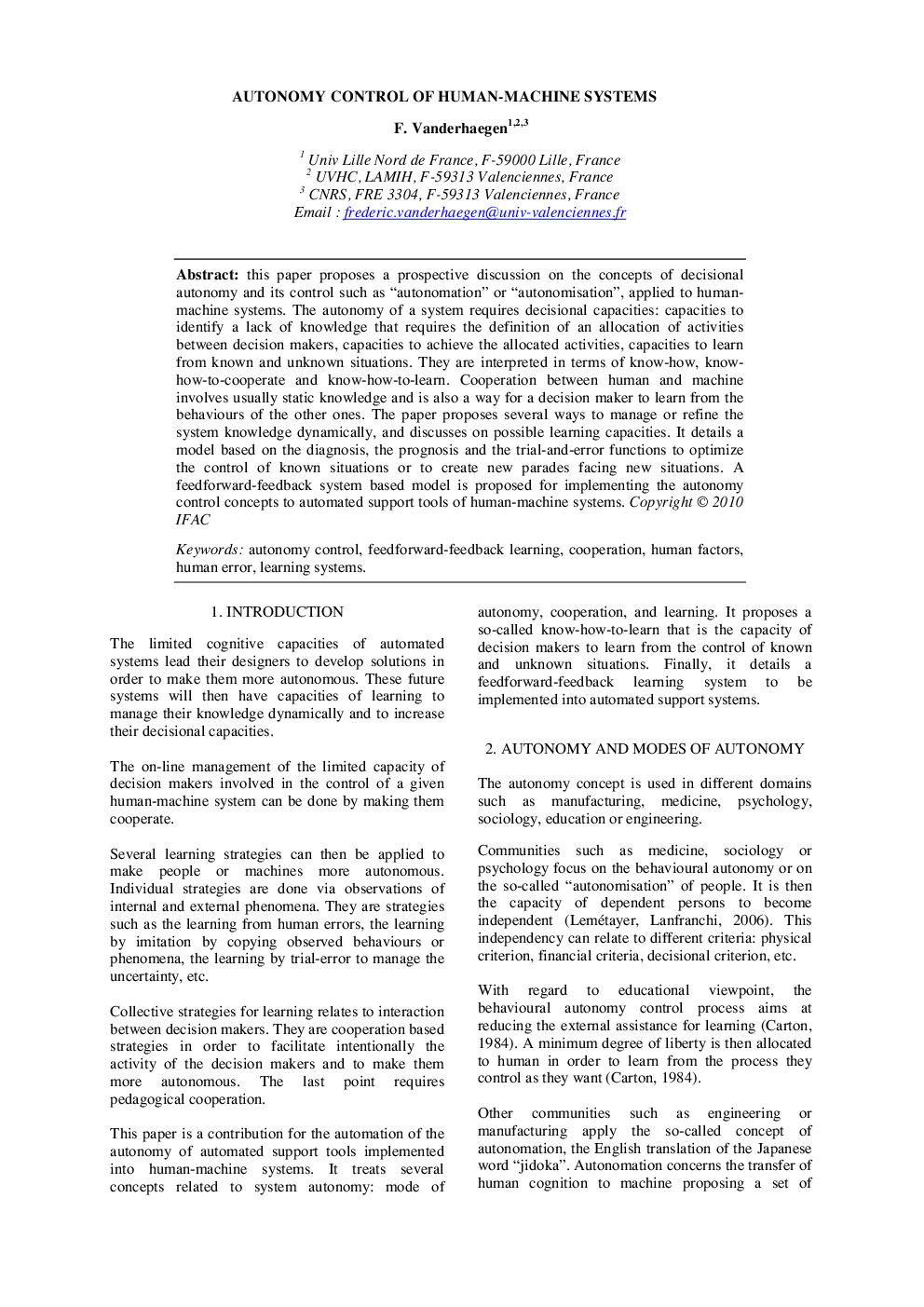| کد مقاله | کد نشریه | سال انتشار | مقاله انگلیسی | نسخه تمام متن |
|---|---|---|---|---|
| 710025 | 892099 | 2010 | 6 صفحه PDF | دانلود رایگان |

this paper proposes a prospective discussion on the concepts of decisional autonomy and its control such as “autonomation” or “autonomisation”, applied to human-machine systems. The autonomy of a system requires decisional capacities: capacities to identify a lack of knowledge that requires the definition of an allocation of activities between decision makers, capacities to achieve the allocated activities, capacities to learn from known and unknown situations. They are interpreted in terms of know-how, know-how-to-cooperate and know-how-to-learn. Cooperation between human and machine involves usually static knowledge and is also a way for a decision maker to learn from the behaviours of the other ones. The paper proposes several ways to manage or refine the system knowledge dynamically, and discusses on possible learning capacities. It details a model based on the diagnosis, the prognosis and the trial-and-error functions to optimize the control of known situations or to create new parades facing new situations. A feedforward-feedback system based model is proposed for implementing the autonomy control concepts to automated support tools of human-machine systems.
Journal: IFAC Proceedings Volumes - Volume 43, Issue 13, 2010, Pages 398-403